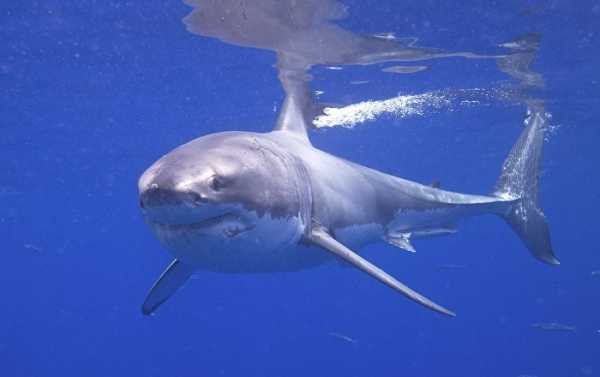
The great white shark is the world’s biggest macropredatory fish. Large females can grow up to 6 metres in length. However, most are smaller, 4-5 metres in length. Although humans are not their preferred prey, the sharks are responsible for the largest number of fatal attacks on humans.
Great white sharks were seen attacking and a killing humpack whale in what scientists said was the first-ever recorded incident. The incident was witnessed by employees from the Ocean Research Institute, who received a tip-off about a humpback whale that had become entangled in a fishing net and travelled to the area to help the cetacean. They later described the incident in a study published in the journal Marine and Freshwater Research.
While approaching the whale they spotted two great white sharks that were circling the humpback before one of them attacked it. The second attack resulted in a loss of a large amount of blood. After that the second and larger of the two sharks bit the cetacean the third time and fourth times. The last bite was fatal. The shark bit the humpback’s tale more aggressively than on the previous attacks.
Great white sharks normally feast on carrion and whale carcasses. According to previous studies, the ferocious predators may even base their migration on whale meat supply. While other species of sharks, such as dusty sharks are known to have attacked live whales, this is the first time that a great white shark was seen attacking and killing a whale.
“We acknowledge that this was a singular event, a consequence of the whale being entangled and in poor condition. Therefore, the event should not reflect all white shark attacks on live baleen whales. Nevertheless, this paper presents observations on a rarely observed interaction between white sharks and live whales”, reads the study.
Sourse: sputniknews.com






